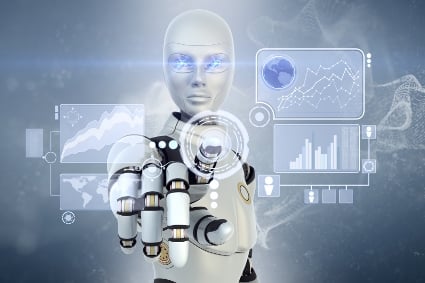
Business leaders could soon face a delicate balancing act between humans and machines.

Although some professionals are said to be at risk of losing their jobs to robots, business leaders are looking at the possibility of both complementing – rather than competing with – each other.
About 52% of CEOs are exploring the benefits of humans and machines working together, a recent survey by PricewaterhouseCoopers (PwC) said. Some 39% are considering the impact of artificial intelligence on future skills needs. The survey interviewed 1,379 CEOs across 79 countries.
“Getting people strategy right in a world where humans and machines work alongside each other will be the biggest challenge leaders will ever face. No one can be sure how the world of work will evolve, so organisations must prepare for any scenario – and if the events of 2016 have taught us anything, it’s that no scenario can be dismissed as too unlikely,” said Jon Williams, chief of PwC’s global People and Organisation practice.
This means that CEOs could face a delicate balancing act ahead. “It’s the role of business leaders to protect and nurture the employee-employer relationship throughout this turbulent time, without it, organisations will struggle to find and keep the people they need, Williams added.
“The challenge for CEOs is to show that in the technological age, humans are their priority.”
Only 16% of CEOs said they plan to cut their firm’s headcount over the next 12 months. But only a quarter of that number said this was because of technology.
The report said computers far outstrip humans when it comes to analysing vast quantities of raw data, for example. But they lack the intuition, empathy and creativity required to make sense of that data.
“The intersection between man and machine can generate more value for business than either alone. It can also make many jobs more interesting and more purposeful.”
Some 77% of CEOs are concerned that key skills shortages could impair their company’s growth. And they said it’s the soft skills they value most that are hardest to find.
A 2013 paper published by Oxford University found that 47% percent of total US employment stood at high risk of computerisation “over some unspecified number of years, perhaps a decade or two.”
“[A]s technology races ahead, low-skill workers will reallocate to tasks that are non-susceptible to computerisation – i.e., tasks requiring creative and social intelligence,” the study said.
“For workers to win the race, however, they will have to acquire creative and social skills.”
Recent stories: